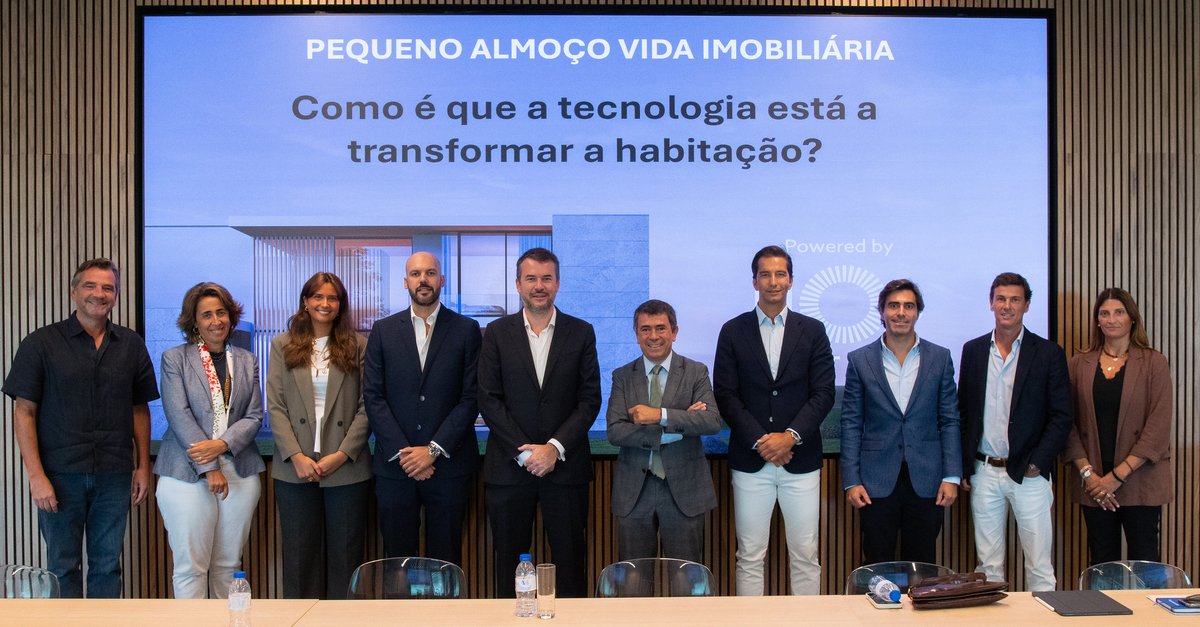Simplification is Key for More Technological and Efficient Homes, Say Industry Leaders
The integration of smart home technology is rapidly moving from science fiction to a standard feature in modern housing, but its widespread adoption in the Portuguese residential market faces challenges related to cost and consumer demand. This was the central theme of an editorial breakfast on "How is Technology transforming housing?" hosted by Vida Imobiliária and NOS Smart Home on September 12th in Lisbon. Industry leaders from development, engineering, and technology sectors gathered to discuss the path toward making homes more comfortable, efficient, and sustainable.
Real estate developers at the event made it clear that the level of investment in home automation and energy efficiency solutions is directly tied to the target market segment and client expectations. Francisca Martins, an administrator at developer AM48, stated, "For the middle and lower classes, the reinforced investment in home automation... is not yet highly valued by the customer who buys an apartment from us." This view was shared by Pedro Cardoso, Development Director at Teixeira Duarte Real Estate, who noted that expectations for technological features are significantly higher in the luxury segment compared to the mid-range market. The consensus was that the primary goal is to meet the expectations of different clienteles.
The cost and complexity of integrating these systems were identified as major hurdles. João Preto, director of the engineering firm FICOPE, emphasized the importance of early-stage planning to manage costs associated with more robust electrical systems required by modern technology. He explained that wired protocols like KNX are often more expensive and require more space than wireless solutions. Despite these challenges, Preto asserted that the trend is unstoppable, as younger, tech-savvy generations enter the housing market. Architect Miguel Martins Santos added that a simplified user experience is crucial for mass adoption, especially for the middle-class housing segment that is most in demand.
Need Expert Guidance?
Get personalized insights from verified real estate professionals, lawyers, architects, and more.
In response to this market need, technology providers are developing more accessible solutions. Daniel Beato, an administrator at telecom giant NOS, predicted that home automation will follow the same path as fiber optics, evolving from a luxury to a standard utility. NOS has launched its NOS Smart Home solution, an integrated service for developers that simplifies the implementation of smart features like climate control, security, and lighting. Diogo Serras Pereira, director of NOS Smart Home, explained that their wireless system is designed to be less expensive and require less complex installation than traditional wired systems like KNX, thereby making it viable for a broader range of housing projects.
The experts also discussed the importance of after-sales support and property management. José Rui Meneses e Castro, co-CEO of MAP Group, pointed out that the residential market is not accustomed to ongoing property management, a gap his company aims to fill with its new MAP Property Services division. Daniel Beato of NOS agreed, suggesting that service providers can help developers create a better post-purchase experience for homeowners. The overall sentiment was that simplifying technology, from installation to daily use, is fundamental to its democratization in the Portuguese housing market.
Stay updated on real estate technology trends at realestate-lisbon.com.






